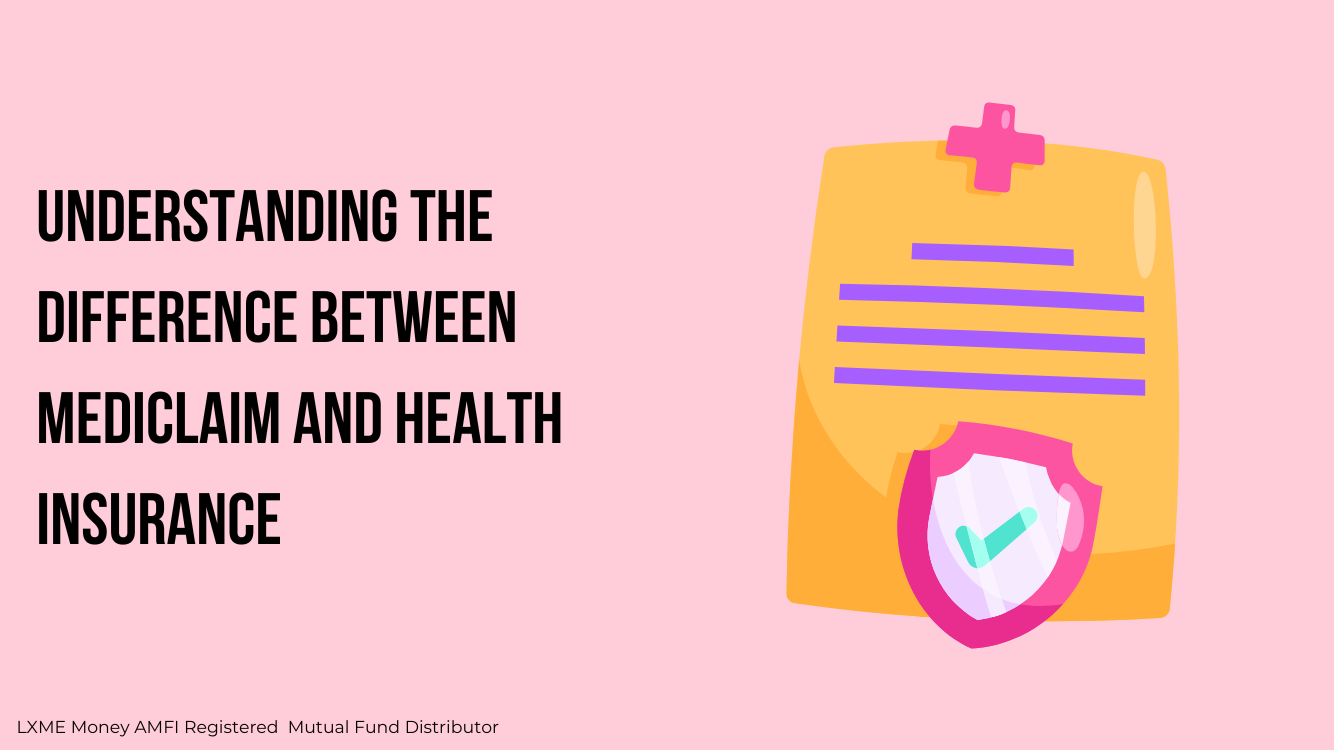Divya – Hey, I’ve been thinking about my company’s health insurance. Should I take additional health insurance if my company already provides it?
Lxme Money Coach – While your company’s insurance is a good start, there are reasons why having additional coverage could be beneficial.
Divya – Really? Why would I need more when my company already covers it? Me and my spouse both work in the IT industry and have corporate medical insurance covering all family members.
Lxme Money Coach – Well, considering the potential limitations, future job changes, and the need for comprehensive coverage, it is always a good idea to have additional health insurance even if your company provides it. Let’s explore why having just corporate medical insurance won’t be enough!
(Conversations like these keep happening in our Lxme community. Check them here.)
Let’s first understand, what is a Health Insurance Policy?
Health insurance is the type of insurance that covers a whole or a part of the risk of an individual incurring medical costs.
Why is Health Insurance necessary for women?
- Protecting yourself and your loved ones is an essential part of a comprehensive financial plan for women.
- Surprisingly, the Lxme Women & Money Power Report 2022 revealed that 58% of women do not have insurance(life or health) in their name.
- Women experience different life challenges throughout their life. Having Health insurance for women is crucial, allowing them to prioritize their well-being and avoid excessive financial burden.
- By securing a tailored health insurance plan women can receive necessary medical care and financial support during health challenges such as pregnancy, critical illnesses, e.t.c.
Many of us will just be having health insurance provided by our companies. But there is something important to consider instead of solely relying on the company for our health insurance needs.
Does it really provide sufficient coverage for your or your family’s health needs? And in case of a job change or a sabbatical or retirement?
Let’s simplify this and get all our answers together!
Why corporate health insurance won’t be enough?
Corporate health insurance is a type of coverage that is provided by your employer. It’s like a special benefit from your job that helps take care of your and your family’s health costs.
But, you may face the following problems if you solely rely on a corporate health insurance plan:
- Due to rising healthcare costs, corporate health insurance may not keep pace, resulting in higher out-of-pocket costs for employees.
- Employers offer a standardized sum insured for all employees and their families. Factors like your age, family situation, lifestyle and medical history should determine the ideal health coverage. Relying on a one-size-fits-all employer’s health insurance policy may leave you inadequately protected during critical times.
Let’s understand this with an example –
Shreya had a corporate health insurance policy covering her spouse and dependents.
Her employer insurance had a coverage limit of ₹5 lakh, which fell short when her father required hospitalization and costly medical tests, leaving her with significant out-of-pocket expenses.
If she had additional health insurance with sufficient coverage, it would have saved her from this financial burden.
- Corporate Health Insurance Plans are designed to meet the needs of a diverse group of employees resulting in a lack of customization for individual healthcare needs and preferences.
- In most cases, Corporate Health insurance Policy ends when you leave your job, leaving you without coverage during job breaks. If something unfortunate happens during this time, you’ll have no protection. Also, corporate health insurance usually doesn’t continue after you retire, further leaving you unprotected
So, what should one do?
Though corporate health insurance comes with certain benefits, they have their own constraints too. Having both plans is wise. It adds extra protection beyond the limits of the corporate plan and also safeguards you during employment changes or retirement.
Share this blog with your family and friends if you find it insightful!!
Download the Lxme app for more such content!












